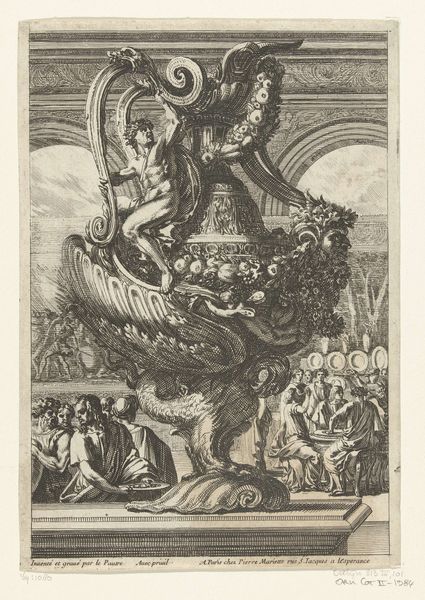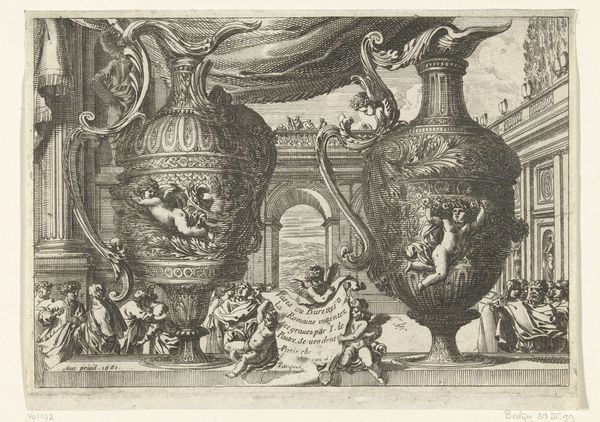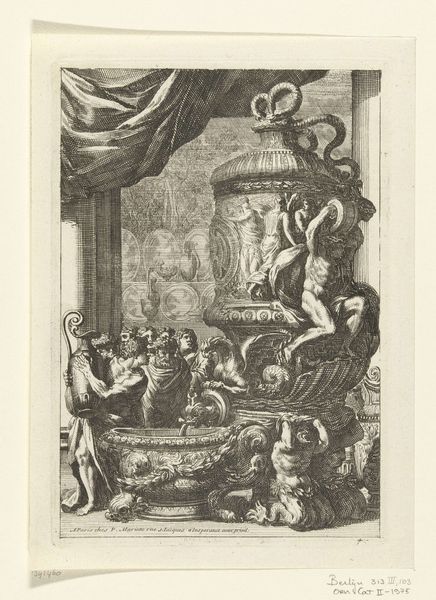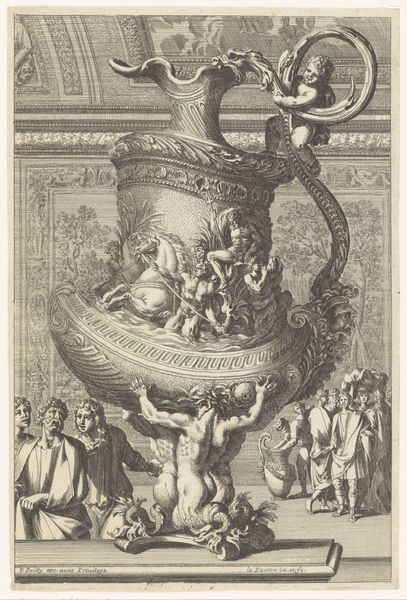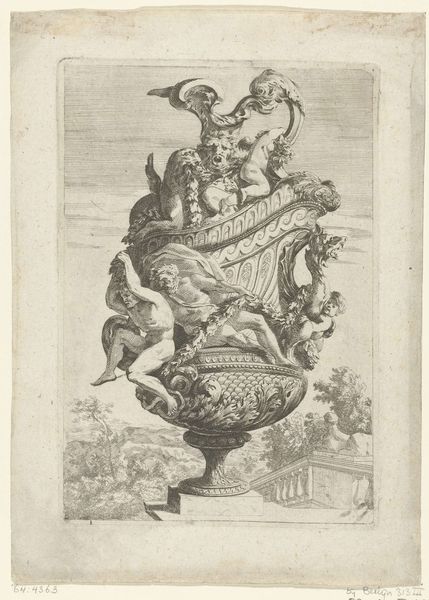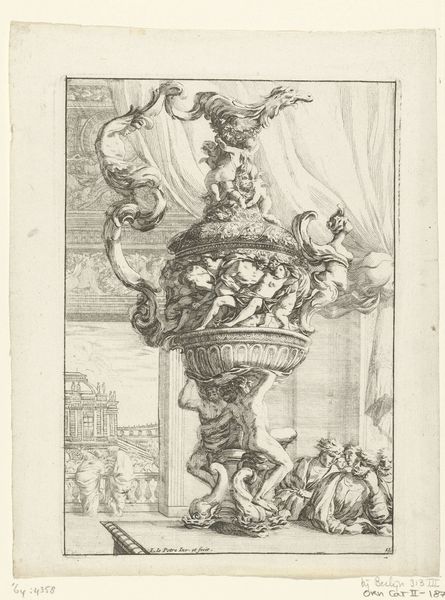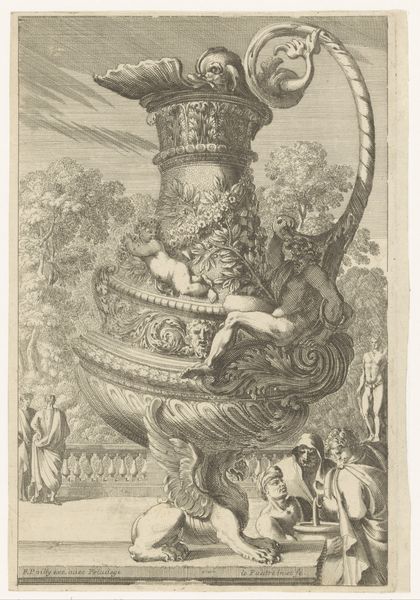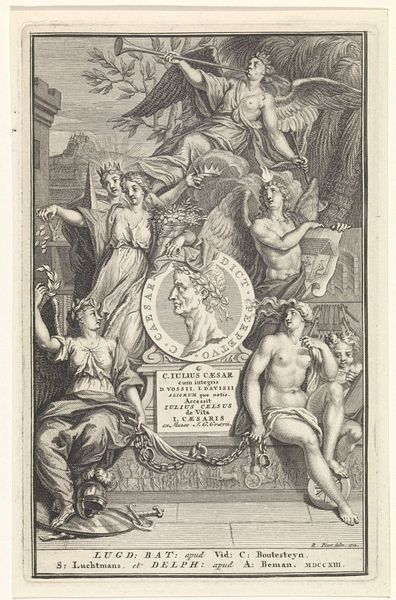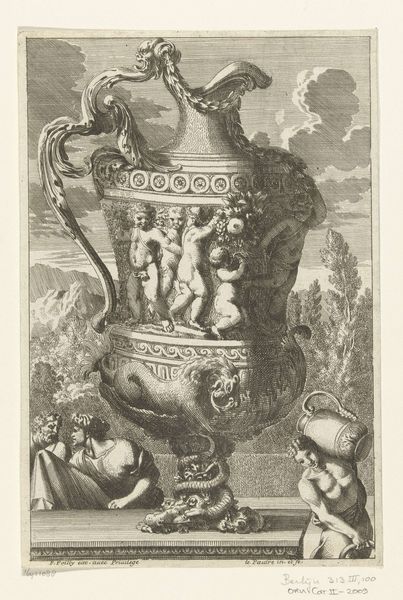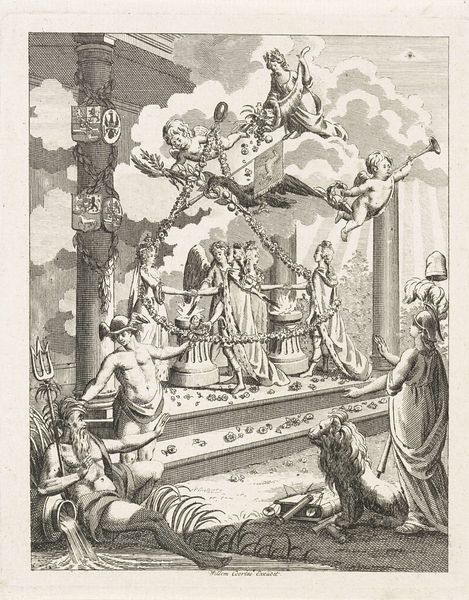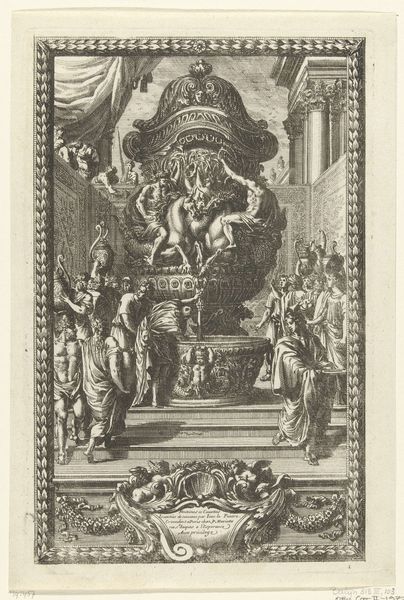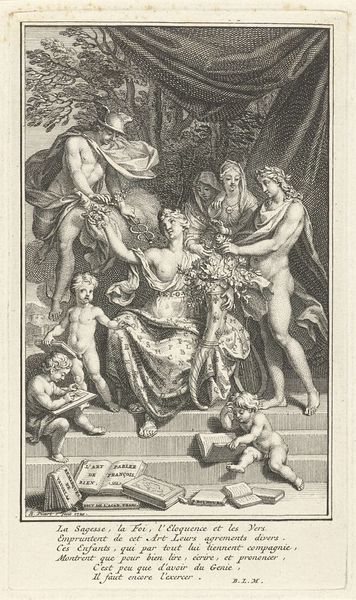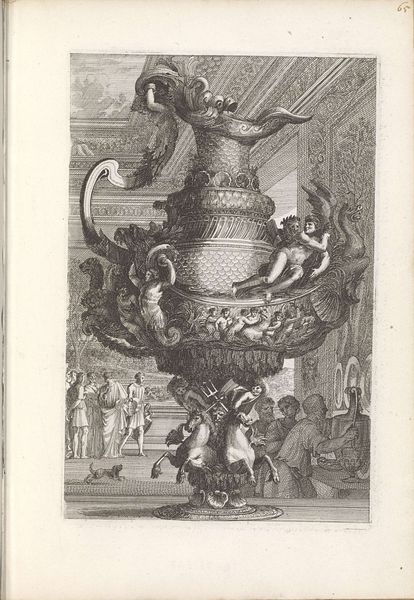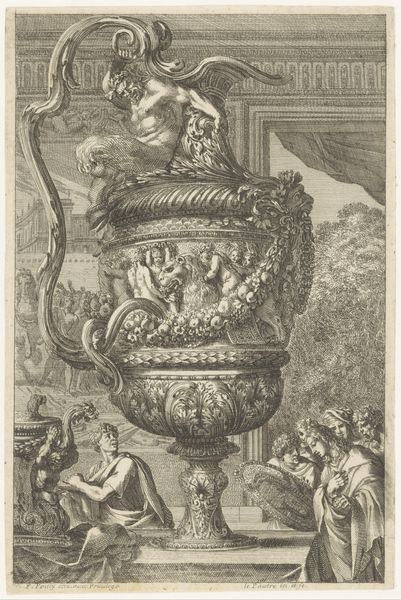
print, engraving
#
baroque
#
pen drawing
# print
#
pen illustration
#
pen sketch
#
old engraving style
#
figuration
#
line
#
history-painting
#
engraving
Dimensions: height 224 mm, width 154 mm
Copyright: Rijks Museum: Open Domain
Editor: This is Jean Le Pautre's "Schenkkan," an engraving that dates from around 1661 to 1751. The ornate detail and the classical figures give it a sort of formal, performative feel. What can you tell me about this piece? Curator: Well, its very extravagance speaks volumes. These decorative prints circulated widely, influencing taste and style in a rapidly changing society. How do you think an object like this participated in creating a culture of luxury? Editor: It seems to me the elaborate design might be advertising status and wealth, but were these just for the elite? Curator: That's a great question. Prints like this, although depicting luxury, also made elements of that luxury accessible to a wider audience. This image normalizes an aesthetic, influencing how people decorate their homes, what they value. In effect, luxury trickles down and creates aspirations. Editor: So, in a way, this engraving is not just showing off wealth, but it's also shaping desires. Curator: Precisely. Consider, too, the figures incorporated into the design – their classical references reinforce certain power structures, a cultural and intellectual lineage that equates to privilege. What does this historical context suggest to you about the relationship between art, power, and accessibility in that time period? Editor: It really highlights the intersection of artistic expression and social conditioning. I hadn't thought about it that way, but now I see how art is both a reflection of and a force in shaping society. Curator: Exactly, and it still is today! Analyzing this through a critical lens helps reveal enduring themes of power, representation, and access.
Comments
No comments
Be the first to comment and join the conversation on the ultimate creative platform.
